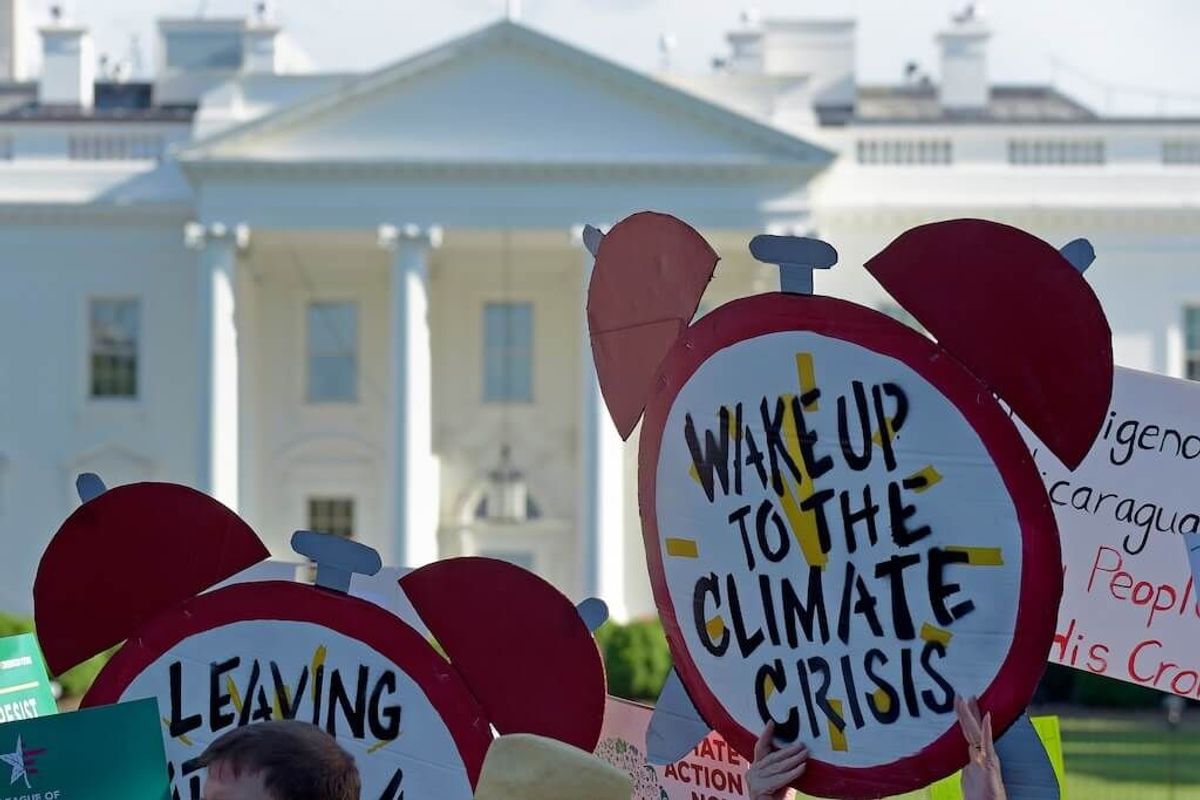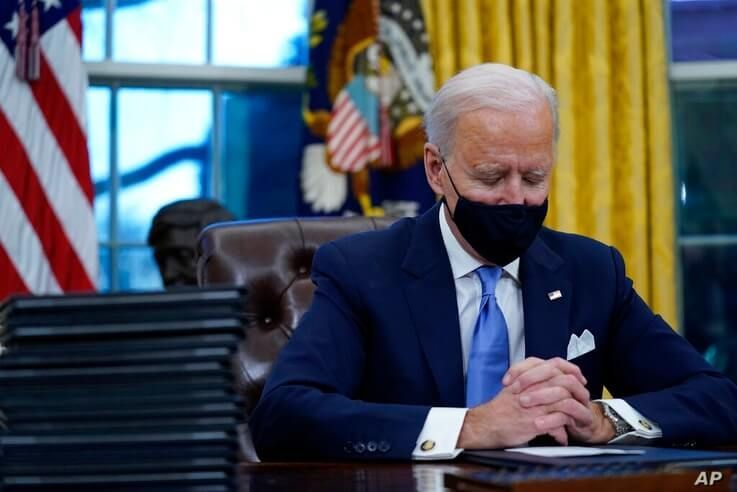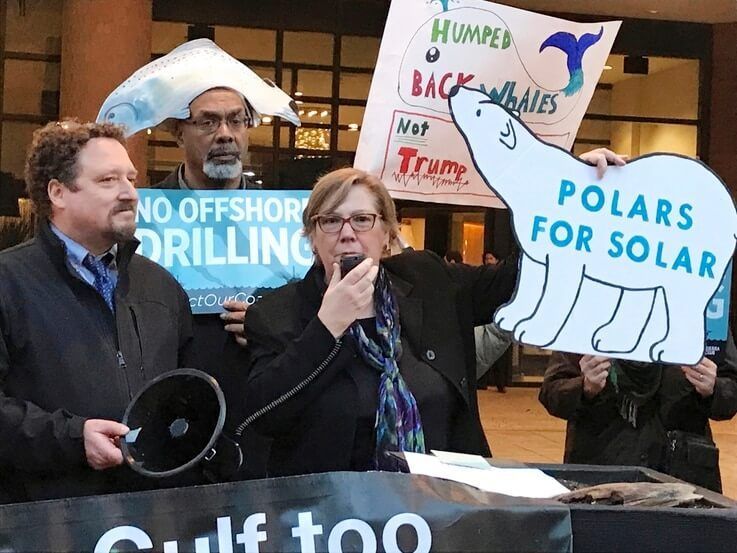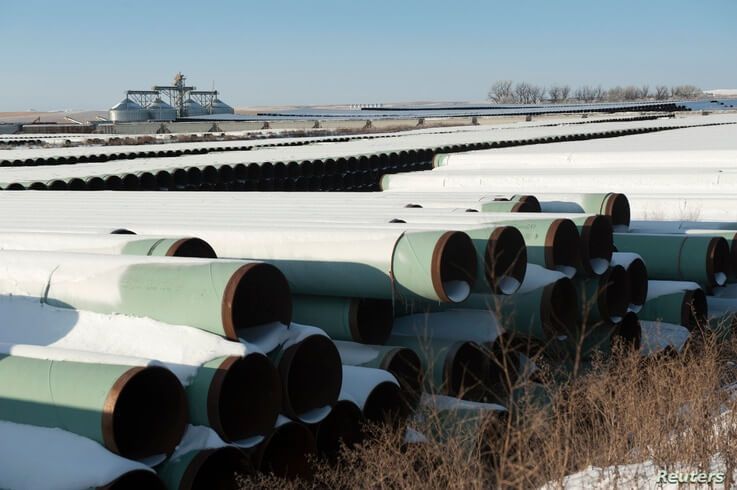
Climate Change Returns to White House Agenda with Biden Executive Order
President Joe Biden immediately began to reverse the Trump administration's policies on climate change with one of 17 executive orders signed Wednesday after his inauguration.
That's in addition to the move to rejoin the Paris agreement to limit climate-changing greenhouse gases.
After four years of federal disinterest in the issue, the order calls on all federal agencies "to immediately commence work to confront the climate crisis."
Among its dictates is the cancellation of the Keystone XL pipeline, a project that perhaps more than any other has become a symbol of the rise and fall and rise of climate policy over the past three administrations.

Keystone XL aims to connect tar sand pits in Canada's Alberta province with crude oil refineries in the southern United States. This sludgy oil takes more energy to extract and refine than standard crude oil, so its total impact on the climate is therefore even greater than that of standard fossil fuels.
Environmental groups strongly opposed the pipeline. They persuaded then-President Barack Obama to kill the project in 2015.
Energy dominance
In a preview of his "energy dominance" agenda, then-President Donald Trump revived Keystone XL with an executive order signed just days after taking office in 2017.
Trump consistently favored domestic fossil fuel production over environmental regulations. He loosened rules on leaks of the potent greenhouse gas methane from oil and natural gas development. He shrank the land area protected in national monuments to allow for more energy extraction. He weakened efficiency standards for appliances and vehicles, saying that the standards made these items more expensive.

Biden's executive order starts the process of reversing those policies. It instructs agency chiefs to consider "suspending, revising or rescinding" Trump's rules.
In all, the Trump administration loosened more than 100 environmental rules, according to The New York Times.
The Biden order suggests all of them are back on the table. It authorizes all agencies "to immediately review … (f)ederal regulations and other actions during the last four years" dealing with climate and the environment.
And it kills Keystone XL. Again.
In the big picture, the pipeline would be one tiny part of the massive U.S. energy system, which generates more greenhouse gases than that of any other country except China.
But at a time when the United States aims to return to the table under the Paris climate agreement, the order says the pipeline "would undermine U.S. climate leadership by undercutting the credibility and influence of the United States in urging other countries to take ambitious climate action."

The Sierra Club, a major environmental group, called Biden's order a "huge and hard-fought victory."
The U.S. Chamber of Commerce, representing a large swath of U.S. businesses, called it "a politically motivated decision" that "will harm consumers and put thousands of Americans in the building trades out of work."
Not all of Biden's actions drew the ire of the business community, however. In a separate statement, the U.S. Chamber said it "welcomes President Biden's action to rejoin the Paris climate agreement."
Business groups have not supported all of Trump's rollbacks, so they may not object to tightening them again.
Major oil companies opposed weakening rules on methane leaks. Automakers split over Trump's vehicle efficiency rules.
Also, many of Trump's rules are being challenged in court. Biden's order says his attorney general does not have to defend them.
Heating up
In signing the order, Biden acknowledged that these executive actions are "all starting points" and much more will need to be done.
And soon. The year 2020 was the second warmest on record, just shy of 2016, according to the National Oceanic and Atmospheric Administration. The planet's seven warmest years all have occurred since 2014.

The United States is not on track to meet its Paris pledge to cut greenhouse gas emissions by 26%-28% below 2005 levels by 2025. Experts say even the world's commitments under the Paris agreement are not enough to ward off potentially catastrophic levels of global warming.
Biden proposed an aggressive agenda to tackle climate change, but executive orders alone will not be enough. He will need Congress to pass legislation.
With a narrow Democratic majority in the House and an evenly split Senate, the task will not be easy. Republicans from fossil fuel-producing states have signaled their opposition.
Biden's policies "from Day One hurt American workers and our economy," West Virginia Senator Shelley Moore Capito said in a statement.
His executive order "comes at the expense of low-income and rural families that rely upon industries opposed by liberal environmental groups," she said. "My constituents and I have not forgotten the harm brought by this approach under the Obama administration."
 Climate, Coronavirus, Border Wall Among Targets of Biden Executive OrdersNext PostMcConnell Seeks to Push Impeachment Trial to February
Climate, Coronavirus, Border Wall Among Targets of Biden Executive OrdersNext PostMcConnell Seeks to Push Impeachment Trial to February 





